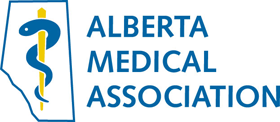

ACP Council is supporting a request from the Alberta Medical Association (AMA) to promote improved access to non-drug alternatives for pain management. The AMA made the request of ACP and other health care organizations as one way to address the opioid crisis.
Both the College of Physicians and Surgeons of Alberta (CPSA) and ACP have introduced new guidelines for prescribing and dispensing opioid medications. The AMA’s request is aimed at preventing chronic pain conditions.
“We all recognize that some people with significant injuries will go on to require long-term opioids or analgesics no matter what we do,” said Dr. Lyle Mittelsteadt, AMA’s Assistant Executive Director, Professional Affairs. “But we also feel there is a significant number of people, with early intervention, who can be rehabilitated to the point where they wouldn’t require any form of long-term therapy.”
The AMA and ACP both hope that improved access to therapies and services that have evidence-based support can help prevent patients from requiring long-term opioid therapy, and that those who develop chronic pain might have access to treatments other than opioids.
“Drugs are not the only answer,” said Greg Eberhart, ACP Registrar. “Where possible, drugs should be used as a secondary intervention. If indicated, and again, where possible, drugs should be used as a complementary alternative to other treatments and lifestyle changes to manage pain.”

“Physicians have found there are groups of patients who respond very well to interventions such as physiotherapy, chiropractic treatments, and other kinds of rehabilitation therapy,” added Dr. Mittelsteadt. “It can help mobilize them, reduce pain quicker, and get them back to normal functional activities.”
The AMA and ACP would also like to see improved access to mental health services, as chronic pain can have a significant effect on an individual’s mental health.
“If you’re used to being active and physically robust, and an injury affects you where you’re not able to be as active, there’s an impact on your mental health,” said Dr. Mittelsteadt. “If you’re depressed, upset, or anxious because of that, it can affect your recovery and your ability to motivate yourself to become active again. That’s not true of every patient, but it does have an impact on some.”
People suffering from mental illness often suffer physical pain as well. Dr. Mittelsteadt believes improved access to mental health care could help some patients to the point where they won’t need opioids for pain. To that end, ACP has agreed to work with the AMA to advocate for improved access for Albertans to mental health supports and rehabilitation services and therapies, some of which can be cost prohibitive for many.
“For many patients, cost is a factor that stops them from accessing these types of care, whether they be rehabilitative services or mental health care,” said Dr. Mittelsteadt. “We’d like to see better coverage and better access to those kinds of services for all Albertans. We’re appreciative of the support of pharmacy in this endeavor and are always glad to work with other health care stakeholders in moving these initiatives forward in order to help our mutual patients.”




